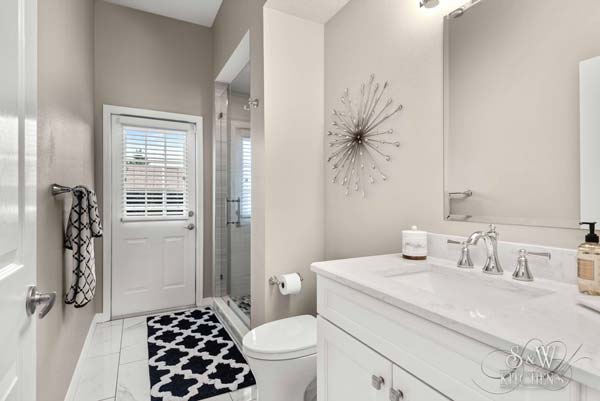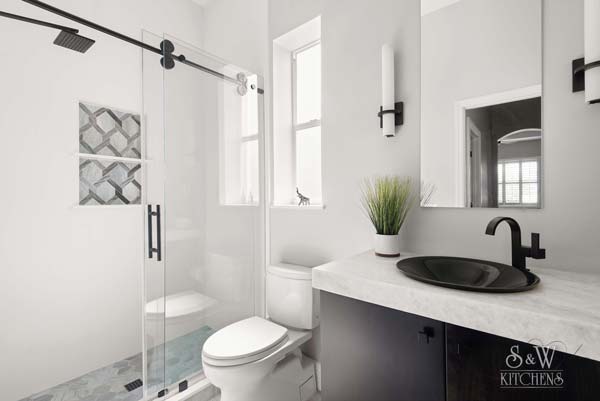If you live in an older home or one that needs some TLC, you may notice that too much water, and money, is literally going down the drain. Leaky faucets, old pipes, and inefficient machines may be driving up your monthly water bill while wasting a precious resource. When planning your renovations keep these options in mind to reduce your water usage.

Leaky Pipes
An extensive check of the pipes under your home can quickly reveal where water is escaping directly into the ground. Fixing a small leak quickly is the best way to avoid a massive problem later. If your house is on a slab, a leak wouldn’t just lose water; it could lead to cracks in the walls and foundations, low water pressure, and even make your house shift and sink. If you notice a new low water pressure problem or bad odors around the foundation outside of the house, you may want to get your pipes checked as soon as possible.
Hard & Soft Water
When planning a renovation, find out the Ph balance of the water coming into your home, then take into account how that’s going to affect your pipes and faucets. Hard water, for example, can cause scale buildup in your plumbing, which will restrict water flow. Soap and shampoo are also difficult to rinse off with hard water, causing you to use even more water.
Buildup from hard water can also cause your washing machine and dishwashers to become slow and ineffective. If you have recently had to start pre-washing your dishes or washing laundry longer, you may need to find out if you have a hard water problem. A test of the water supply and addition of a water softening and conditioning systems can help combat these issues.

Water Efficient Appliances
Many appliances now come with a water efficiency rating that is helpful. For example, front-loading washing machines save water by using less water than a top loader, and a high-efficiency front-loading washer will save even more water.
Modern toilets with the dual flush system can use less than a gallon of water compared to 2 or 3 gallons used in a single flush button toilet. Getting a dual flush toilet installed has the potential to save tens of thousands of liters of water per year.
Replacing your showerhead with new models that have features like smart home technology can also assist with saving water. These new features reduce the flow of water to a trickle when the water heats to 95 degrees, then when you are ready to shower, you pull on the lever returning the flow to normal.
Touchless faucets are also incredibly useful in houses where taps are frequently left on while brushing teeth or shaving and can save as much as 50% in overall water usage.
Water Heaters
One of the highest expenses in your home is heating water. Most water heaters last for 10 to 15 years before needing to be replaced. When planning to get it replaced, make sure your new tank fits your family’s needs. For large families, running out of water can be a daily problem. Switching to a tankless water heater can save you on both water and high energy costs as they heat only the water that is needed.
Reverse Cycle Air Conditioning
Evaporative air coolers (sometimes called Swamp coolers) are typical in areas with low humidity but use quite a lot of water to cool down your home. Replacing that system with reverse cycle air conditioning or ceiling fans instead can save over 13 gallons of water per hour of usage.
Greywater
Greywater refers to “used” water that would usually go straight down the drain after use. It comes from your shower, washing machine, and faucets and can be gathered and reused to irrigate your yard and gardens. There are some restrictions and limitations on how greywater can be used, but getting a greywater solution installed can help recycle up to 40,000 gallons of water a year for a family of four.
Renovations to save water can help you recoup the money you spend on your remodel.
